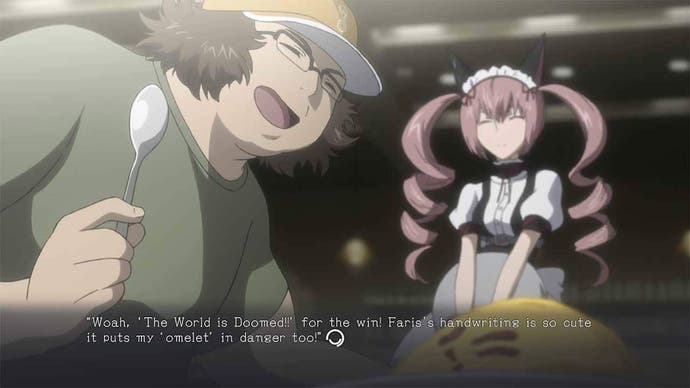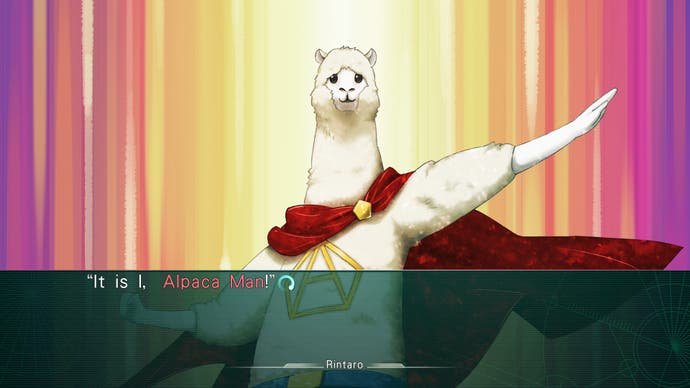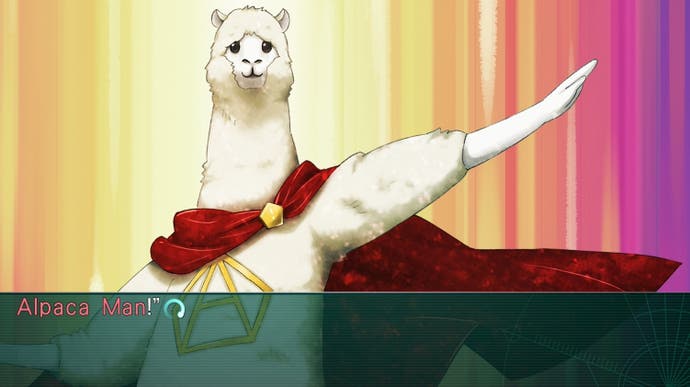Steins;Gate Elite review - a must-have for fans, a maybe for everyone else
(Name subject to change)
When is a video game not a video game?
It's not that I'm just feeling a little existential today. Honest. It's a question that popped up in my head just a few hours into my inaugural journey with Steins;Gate Elite and it's refused to dissipate since.
If we were curled up on a pub's squishy sofa cushions right now and I asked you that question over a pint and some beef and onion crisps, how would you reply? What fundamental thing does a game need to have to be classed as such? Is it the ability to gather skill points to bolster your abilities? Is it the knowledge that you can affect the in-game world around you? Or is it just the fact you boot it up on a console, a phone, or your PC sufficient for you? What does a game have to have that makes it stand apart from a movie or even an interactive novel?
I ask this because Steins;Gate Elite isn't really a game, at least not in the traditional sense. There's no DPS or loot or skill trees or puzzles or extra lives. You don't play Steins;Gate Elite as much as observe it, and whilst there is, admittedly, a little agency in the handful of decisions you can make via your mobile phone, the story chiefly unfolds without your interference. Most of the time, the only interaction you have with the on-screen action involves smacking X to move onto the next dialogue line.

For the uninitiated (and, full disclosure - I'm a newcomer myself) Elite is a refreshed vehicle through which developer 5ph. delivers the same wonderfully untraditional tale of time-travel as its now decade-old - and grammatically confusing - predecessor, Steins;Gate. However, whilst the original offered chiefly static screens, Elite delivers a fully animated visual novel, expertly weaving game footage with brand new scenes created by celebrated anime studio, White Fox. The story itself is disarming - and deliciously dark - in all the right ways, with a charming cast of characters complete with an English dub and the original Japanese voice performances. (Though I suspect some may be disappointed that there's no option to switch between the two).
The story itself? It's difficult to encapsulate (at least for this anime novice, anyway), but you play as the hyper-paranoid Rintaro Okabe - AKA Kyouma Hououin, AKA Okarin - an eccentric, self-proclaimed "mad scientist" who accidentally invents a microwave - the "PhoneWave (name subject to change)" - capable of sending messages to the past. I think. Anyway. It's a bit trope-y and throws the word "mad" around a little too liberally, but it's a fantastic - and fantastical - tale nonetheless, albeit a little too prone to stereotypes and caricatures. You can affect where the story goes by the choices you make on Okarin's phone, and there are several alternate pathways and numerous endings to hunt down. If you have the time, that is; each playthrough will take roughly 30ish hours, so replays may not be for the faint-hearted.

As part of the bundle you may also secure Steins;Gate Linear Bounded Phenogram, a downloadable compendium that offers a further ten new stories - yes, that's another 30+ hours of play - expanding upon the backgrounds of every lab member. While not essential to the Steins;Gate story, they pack meat onto the bones of the backstories of all the characters, and it's for these reasons that I genuinely feel that this remaster isn't a cynical cash-grab, but rather a careful recrafting of a classic fan favourite, complete with the opportunity to experience something new, too. £50 is a considerable outlay for anyone - particularly for a title you might already know and own - but if you're a fan of the original, I can't help but think you'd probably love this, too.
It's a braver critic than I that would stand atop a soapbox and lecture that a game is too long - you'll never catch me beating my chest and screaming: "NO! Developers need to offer LESS value for money, not more!" - but Steins;Gate Elite's opening hours don't necessarily fly by, which makes me ponder, cautiously, if some sequences might be needlessly... uh... long. Don't get me wrong; Elite is a huge, sprawling, intensely complex tale, and it takes time to properly build a world and characters that feel real to the player... but it takes several hours for it to feel like it's properly progressing and not just swamping you with evermore exposition.
That said, the execution is fantastic, and Steins;Gate Elite admirably delivers whether you're a series newcomer or a seasoned admirer. And while there's a temptation to suggest its best suited to portable systems such as the Nintendo Switch - not least because your progress in a visual novel can't be hampered by an ill-timed speed bump or unintentional elbow knock from a fellow commuter - actually, Elite looks really, really good on the big screen. So if you do pick this up on the Switch, make sure you dock it occasionally, if just to give the visuals the majesty they deserve.
Am I a visual-novel-slash-anime convert? Probably not. As welcoming as Elite has been to a genre newbie, I found the pacing a little too slow, and my inability to affect the major narrative beats just a little too frustrating. I suppose we've circled back to where I started; is a 30+ long (occasionally) interactive anime show really a video game? I'm not sure, to be honest. But regardless of how you'd categorise it if you loved Steins;Gate, you'll no doubt love Elite.


